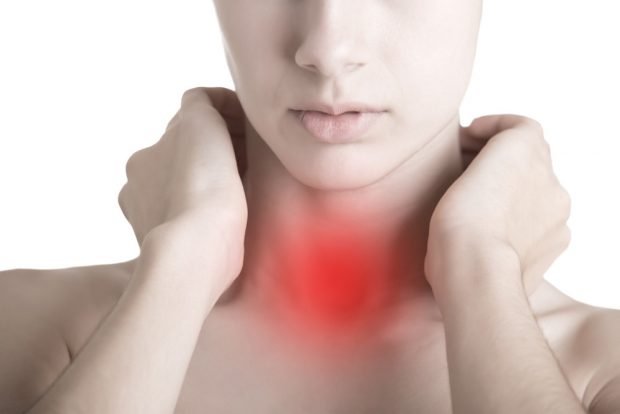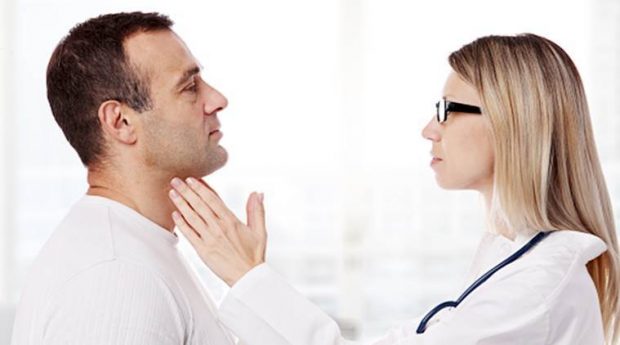World Thyroid Day falls on May 25 2022. This day is dedicated to raising awareness about the serious impact thyroid disease can have on one’s quality of life, if the condition remains undiagnosed, or is not properly treated.
What is the thyroid?
The thyroid is a butterfly-shaped gland located in the front of the neck wrapped around the windpipe. It’s responsible for making hormones that are important for different systems in the body to function properly.1a One of the hormones produced by the thyroid is thyroxine (T4).2a The right amount of T4 in your blood is essential to support your body’s digestion, heart and muscle function, brain development and bone upkeep.
The thyroid is also there to ensure that other organs are working as they should.2a
Types of thyroid disease
There are two main types of thyroid disease. When the thyroid is overactive and makes too much thyroid hormone, this can result in a condition called hyperthyroidism. And when the thyroid is underactive, too little thyroid hormone is made, this is called hypothyroidism.1b

ruigsantos/shutterstock
Hypothyroidism most commonly occurs due to autoimmune damage to the thyroid gland. However, it can also arise as a consequence of iodine deficiency or exposure to radiation, among other causes.3a,1c
What are the symptoms of hypothyroidism?
Signs and symptoms of an under active thyroid usually develop slowly, and mild symptoms are mostly ignored until the symptoms become unbearable.4a,8
There are a number of symptoms associated with thyroid disease which can easily be overlooked or confused with other conditions.”4a,1d
Often overlooked
I list some of the symptoms associated with hypothyroidism. These include, feelings of fatigue with no obvious cause. Also abnormal menstrual periods, weight gain of five to ten kilograms despite a healthy lifestyle, and thin or brittle hair or fingernails.4a
Other symptoms of an under active thyroid include sadness, mood swings, depression, irritability, muscle and joint pain, constipation, hair loss, and fertility problems.4a,3b The loss of the outer third of the eyebrows, particularly in women, is the only symptom that is specific to thyroid disease.4a
If you’re experiencing any of these symptoms which are associated with hypothyroidism, it’s time to get yourself tested to find out how well your thyroid gland is functioning! The best way to find out is to have a TSH (thyroid-stimulating hormone) blood test.2b
What is a TSH test?
The role of TSH is similar to that of the conductor of an orchestra in that TSH controls the amount of T4 that is produced by the thyroid gland.2b,2c Changes in blood TSH levels can be a sign that T4 levels are too high or too low; high TSH indicates that the thyroid gland is not making enough T4 (hypothyroidism), and low TSH may indicate that too much T4 is being produced (hyperthyroidism). In most healthy individuals, a normal TSH value means that the thyroid is functioning properly.2b
Who is at risk of developing hypothyroidism?
Thyroid disease is a common health problem5a and can affect anyone.1e However, hypothyroidism more commonly occurs in women and with increasing age.1f
According to The Lancet, thyroid diseases affect an estimated 200 million people worldwide. An estimated 40% of the world’s population are at risk of iodine deficiency, a nutrient that is essential for the production of thyroid hormones.
In my personal research experience, 4% of the South African population suffers from hypothyroidism. I estimate that at least half of these cases remain undiagnosed.

Thinkstock/Getty Images
Furthermore, people of Indian origin have the highest prevalence of hypothyroidism, followed by Caucasians. However, I caution that hypothyroidism is also a health concern in people of mixed race and African descent. In particular, I strongly recommend a TSH test for:
- Young women experiencing menstrual problems, a history of miscarriage, or not falling pregnant
- Children who are not growing and who are falling behind in school
- The person with a goitre – a fullness in the neck that is a sign of an enlarged thyroid – has a family history of thyroid disease.
High TSH levels – what now?
When diagnosed with hypothyroidism, there are cost-effective and easily accessible thyroid hormone replacement medicines, such as levothyroxine that can be taken as a daily treatment.9 Levothyroxine starts to work straight away. However, it can take a few weeks before symptoms get better, even when someone is taking their medication in the proper manner as explained to them by their doctor or pharmacist.4b
It’s important there is good communication between you and your doctor. A relationship of mutual respect wherein honest discussions can take place and feelings can be shared. This is ideal for agreeing on the right goals of treatment and care.6 These factors ultimately lead to better treatment outcomes.7
Remember to share information about your general wellbeing, symptoms, and any other health issues with your doctor.
For more information, visit Thyroid Aware.
Who is the author?

Dr. Sindeep Bhana
Dr. Sindeep Bhana is a Principal Specialist and Head of Endocrinology and Metabolism at Chris Hani Baragwanath Academic Hospital.
He is also the Head of Diabetes, Endocrine, and Metabolism in Internal Medicine at Chris Hani Baragwanath Hospital – where he is involved in several publications, poster presentations, and numerous pharmaceutical trials. He’s also an alumnus of the University of the Witwatersrand. He is currently the Founder/Director of the Centre for Medical Excellence in Waverley.
In 2004, he received a gold medal from the University of the Witwatersrand for teaching excellence. He is also the recipient of the highly respected Phillip Tobas award for teaching. Dr. Bhana has appeared on multiple Media shows on a wide range of topics.





![women [longevity live]](https://longevitylive.com/wp-content/uploads/2020/01/photo-of-women-walking-down-the-street-1116984-100x100.jpg)









